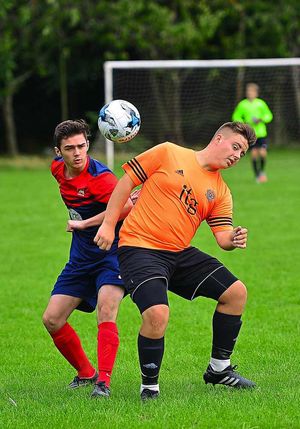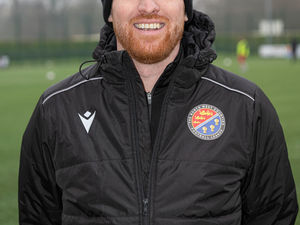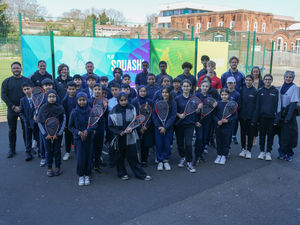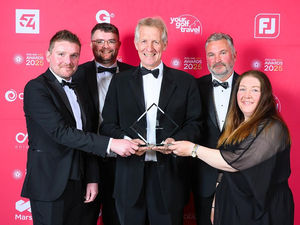FA pitching in to help grassroots level
Black Country amateur football bosses have welcomed the results of an Football Association survey, which found the poor standard of pitches to be the biggest issue affecting the game at grassroots level.
The study, which took the form of an online poll which sought the views of more than 28,750 participants from around the country, also found concerns over the standard of coaching.
Figures showed players with access to better-quality pitches tend to play a third more than the average. Those playing on poorly-maintained pitches play 21 per cent less.
The issue of poor pitches was already on the FA's agenda under its National Game Strategy for Participation and Development.
And a 'significant slice' of its £260million budget for the next four years has been allocated to the problem.
That has been welcomed by those involved in the grassroots game. Lynn Boleyn, welfare officer of Wall Heath-based Kewford Eagles.

They field more than 40 teams in junior leagues, believes the FA had finally 'woken-up' to the issues affecting the grassroots game.
She said: "It has been an issue for a number of years. Some of the council pitches we have had to play on were quite the disgrace.
"Over the years, there has been a real lack of funding and it is good to see that changing."
At present there is a high dependence on local councils to maintain facilities, with 83 per cent of pitches in England being publicly owned and the FA recognises a need for greater involvement.
Part of this will come under the 'Parklife' scheme which will see the creation of 'hubs' of floodlit 3G artificial pitches in cities across the country.
Plans are also in place to improve around 2,000 existing turf pitches and it is hoped the investment will encourage further funding from other sources.
Bilston Youth League chairman Graham Hodson, meanwhile, gave an indication of the pressures facing the amateur game.
He revealed the number of teams in the Bilston Youth League has dropped by a quarter in the last five years.
Hodson, chairman and referees secretary of the league, said: "We have gone from having 250 teams to 180.
"The danger is when you have teams dropping out at the younger age groups – under-10s and under-11s. Eventually, that works it's way up the age groups and you lose more."
While welcoming the results of the FA survey, Hodson also stressed more needs to be done to cap rising running costs.
He said: "That is one of the main reasons we see teams disappear – they can't afford to keep going.
"The cost of courses to train welfare officers and first aiders, which every club needs, can be very expensive.
"It would be nice perhaps to see some of the money used to make some these courses free, or at least lessen the cost."
The study, which sought views from players, coaches, referees, staff and volunteers, also revealed a concerns over coaching standards.
While respondents aged between 10 and 15 expressed high levels of satisfaction, this declined as the age range increased.
Beacon League chairman Brian Lester, while pleased with the overall survey findings, urged the FA not neglect the adult game.
He said: "In the past we've seen a lot of focus on the junior and women's game while the men's game, between the ages of 20 and 30, has really suffered.
"The pitches have been a major issue, there is no question of that. But there are also a lot of costs involved for teams started out, in the past few years we have seen a number fold."
The Beacon League began the season with 22 teams, having finished the previous campaign with just 15.
Pedley continued: "We've already seen a couple drop out. The situation will continue until people realise this is the 21st century.
"Teams don't want to play on pitches without changing rooms, or ones that have ruts and pools of water on them."
Peter Ackerley, the FA's head of participation, said: "We're delighted with the number of people that have sat down and told us what they think.
"Nearly 30,000 is a significant number. We need to understand what the thoughts of anyone involved in the game are and keep listening to them.
"This is the first time we have done a survey of this nature, so we don't have anything to compare this against.
"But this will become an annual survey so we can look at where we are improving or getting worse."





